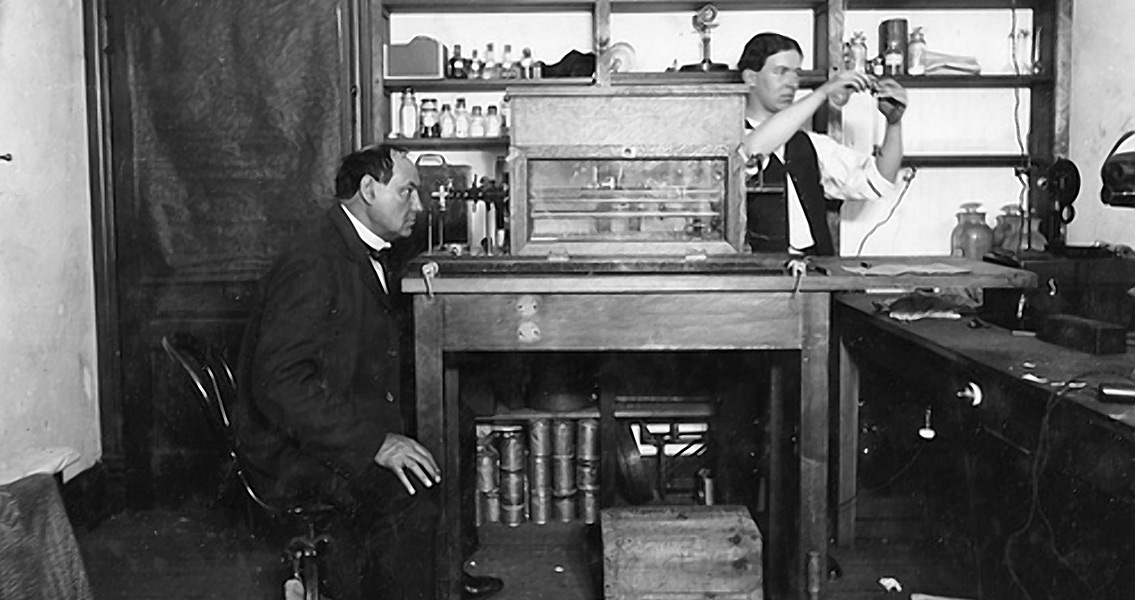<![CDATA[The Pure Food and Drug Act was signed into law in the United States on 30th June, 1906. Designed to protect the American public from the adulteration of food products, or products branded as healthy with no scientific support, it was the culmination of years of campaigning, investigative journalism and scientific research. President Theodore Roosevelt signed the Pure Food and Drugs Act, often known as the Wiley Act, into law alongside the Meat Inspection Act - both pieces of legislation designed to improve food standards in the US and reflecting a greater awareness of the dangers of poor standards. The Bureau of Chemistry was charged with administering the Act. Among other things, the new law prevented the interstate transportation of unlawful food and drugs - under penalty of seizure, and placed strict standards on product labeling. A number of tragic events had shown the dangers inherent in the US' food and pharmaceutical industries at the turn of the twentieth century. At the same time, exposés on these industries turned the public's attention toward their often reckless attitudes. In 1899, US soldiers in the Spanish American War died after eating badly preserved meat. The event turned into a nationwide scandal, culminating in two generals being called to testify to Congress. Just two years later, in November 1901, one of the worst public health tragedies in US history took place in St. Louis and Camden. A contaminated batch of diphtheria antitoxin was unwittingly used by doctors to combat an outbreak of diphtheria among children. Triggering an outbreak of tetanus in anyone who received the vaccine, thirteen children died in the space of a few weeks. Simultaneously with these public health calamities, a series of campaigners strove to push the government into changing the law. The most recognisable was Harvey Washington Wiley, for whom the Pure Food and Drugs Act is sometimes named after. A renowned chemist, Wiley spent much of his career campaigning for reforms in food labeling and food manufacturing. Central to Wiley's campaign was his work with the 'Poison Squad' (officially known as the hygienic table trials), a bizarre scientific experiment which seems almost unbelievable today. Members of the squad were made to ingest a range of food additives and chemicals, including formaldehyde and borax, to measure the substances' impact on human health. The information Wiley got from the trials was used to form the basis of his campaign for legal reform. Journalists and writers also played an important role in turning both civil and political sentiment towards greater regulation of food and medicine, with Upton Sinclair among the most influential. A dedicated socialist and highly educated writer and journalist, Sinclair was commissioned by the Chicago newspaper Appeal to Reason to write an undercover report on the meat packing industry in Chicago. His investigations eventually culminated in his most famous novel, The Jungle, one translated into seven languages and praised by figures as well known as Winston Churchill. Designed to highlight the poor conditions for workers in Chicago’s meat packing industry, The Jungle, published in February 1906, in fact caused more indignation for its depiction of bad meat. Laying bare the procedures and practices behind the meat industry, the novel grew wider and wider circulation, and placed increasing pressure on the government to act. Other journalists and writers had written investigative pieces on the meat industry, but The Jungle, due to both its popularity and the fact it was published shortly before the passing of the Pure Food and Drug Act, is often regarded as the most influential. The obligations and legal mechanisms incorporated in the Pure Food and Drug Act are now common place around the globe, to the point they can often be taken for granted. On the 110th anniversary of the passing of the Act in the USA, its history provides a pertinent reminder of the multitude of factors behind the implementation of such crucial legislation. ]]>
Tragedy, Poison and The Jungle – The Pure Food And Drug Act
